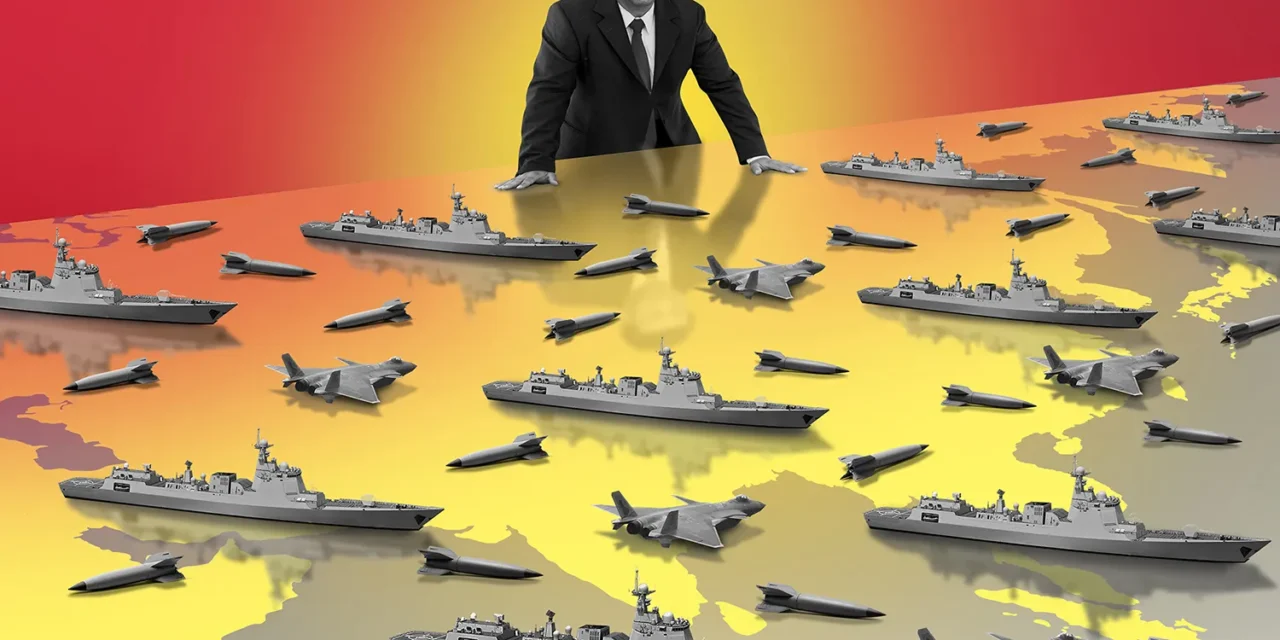Summary: This article explores the scenario of a war with China—what it would look like, why it matters, and how prepared the United States (and China) really are. From Taiwan and the South China Sea to strategies, nuclear risks, and long‑term logistics, we’ll examine the tough questions: what happens if we go to war with China? The topic is worth reading because the potential consequences for global stability, the U.S. military, and everyday Americans are enormous.
1. What might trigger a war with China over Taiwan?
A major flashpoint is Taiwan. Beijing sees the island as part of its territory and the People’s Liberation Army (PLA) is increasingly ready for an invasion of Taiwan. The United States has long committed to supporting the Republic of China (Taiwan) and deterring a Chinese attack. Analysts argue that if Beijing decides aggression is necessary, a war against China could begin with an invasion of Taiwan.
If the U.S. responds militarily in support of Taiwan, then war would involve the United States and China directly. The “would win” question becomes real. The stakes are high. The U.S. may no longer treat Taiwan as an abstract interest—it becomes a central axis in a U.S.-China war.
2. How would the South China Sea factor into a U.S.-China war?
The South China Sea is another geographical and strategic fault line. China claims large portions of it and denies U.S. naval freedom of navigation operations. If war with China breaks out, much of the early fighting could occur in and around this area. China could attempt to deny U.S. forces access to the region or strike supply lines.
Some war games suggest that U.S. air and naval superiority may be challenged in the region. The U.S. still commands more aircraft carriers, but China’s anti-access/area-denial capabilities are growing. This means that in a conventional war, the environment of the South China Sea could favour China initially.
3. Could the United States and China really go to war — and who would win?
Yes—they could. Scholars at the Army War College and others note that a war between China and the United States is no longer purely hypothetical.
As for who would win: there is no clear answer. Some simulations predict U.S. victory but at extreme cost. Others see China winning in certain scenarios. “Would win” depends greatly on timing, geography, alliances, preparedness, and political will.
4. What kind of military force do Beijing and Washington bring to the fight?
The United States and China each bring formidable forces. The U.S. military still has global reach, advanced technology, and powerful allies. China could deploy large numbers of missiles, submarines, drones, and cyber tools. The Chinese economy supports broad military modernization and the PLA is beefing up.
Washington would likely rely on aircraft carriers, long-range bombers, missile defence systems, and alliances in the Indo-Pacific. Meanwhile Beijing would use its advantage of proximity to Taiwan and possible geography. A war could see the use of the latest tech: long-range fires, missile swarms, perhaps even space or cyber warfare.
5. How would the U.S. preparing for war with China change the mainland United States?
It’s not just offshore. Analysts point out that if a war with China breaks out, the continental United States might no longer be safe from disruption. For example, U.S. bases on the home coast could be targeted by missile or cyber attacks from China.
This means Americans would face not just distant fighting in the Pacific but the real possibility of domestic impact—whether from supply chain disruptions, missile threats, or cyber warfare. The war college-style thinking points to a long war stretching U.S. industrial capacity, defence production, and civilian resilience.
6. What about nuclear weapons, escalation, and the risk of world war iii?
A war with China raises the spectre of nuclear escalation. Analysts explain that while a conventional war might dominate early stages, both sides hold nuclear arsenals and the risk of escalation is real.
Would the U.S. use nuclear weapons? Would China? These questions cannot be ruled out. Escalation might pass through missile strikes, cyber warfare, even space warfare. The phrase “who would win world war iii” enters the debate here. The hope is that war stays conventional—but the risk of a nuclear phase means catastrophic outcomes.
7. Can a war between China and the United States be short—or would it become a long war?
Some commentators argue that conflict would be short: quick invasion of Taiwan, quick U.S. response, quick resolution. Others think this is unrealistic. Both sides have the capacity and motive for what would be a long war of attrition. The U.S. is preparing for a long war with China.
In a long war scenario, logistics, production, alliances, and homefront support matter. A war strategy rooted in war of attrition benefits whoever sustains production and morale longer. For China, that might mean leveraging its neighbor region, domestic control, population size; for the U.S., it means industrial base, allied networks, and global presence.
8. What role might North Korea and other regional actors play in a U.S.-China war?
The primary adversaries in a war with China are obvious—but regional players could tip the balance. For example, North Korea could widen the war or distract U.S. forces. The U.S. must also consider Japan, South Korea, Australia, and ASEAN states. The three-way relationships around Taiwan, China and the United States are already under stress.
Allies matter. If Washington still has strong partners—and integrated planning via war college lessons—the U.S. might be better positioned. But if allies stay on the sidelines or are neutral, China could exploit that gap. The war would not just be U.S. vs China; it would involve multiple theatres.
9. How would trade war, economic disruption and supply chains be impacted by a war with China?
A war with China isn’t just bombs and ships; it will deeply affect global trade, economy, and supply chains. The United States may face embargoes, loss of access to Chinese markets, or Chinese disruption of critical materials. On the flip side, China could suffer from U.S. sanctions and loss of trade.
In a war scenario, the “trade war” phase might precede or accompany kinetic conflict. Disruption in Taiwan (a global chip manufacturer) or the South China Sea (trade routes) means ripple effects. A protracted war would strain the Chinese economy and the United States’ war-fighting economy both.
10. Could the United States still win — or is this a stalemate that benefits Beijing?
Could the United States still win? Possibly, but it’s not guaranteed. A U.S. victory might not mean China is defeated; perhaps China stands down or negotiates. A stalemate would effectively benefit Beijing. The war college and defence analyses warn that Washington must expect a high-cost conflict and cannot assume “we win easily.”
“Defeat China” is a phrase sometimes used, but winning might mean preventing Beijing from achieving its objectives (e.g., seizing Taiwan) rather than wiping out the PLA. The war would test American resolve, industrial capacity, alliances, and national unity. Even if the United States emerges intact, the costs could be enormous.
Key Points to Remember
- A war with China over Taiwan or in the South China Sea is no longer purely theoretical
- The United States and China both bring extensive military capabilities, but geography, logistics, and alliances matter
- The risk of nuclear escalation means such a war could become world war iii—though that is not inevitable
- The U.S. is preparing for a long war with China, not just a short strike operation
- Economic, industrial and trade factors will influence the war’s duration and outcome as much as bullets and bombs
- Regional actors like North Korea and U.S. allies may tip the balance
- Victory may not mean total defeat of China—it might mean preventing Beijing’s primary objectives
- The best outcome isn’t necessarily a war—it’s deterrence and manageable competition





